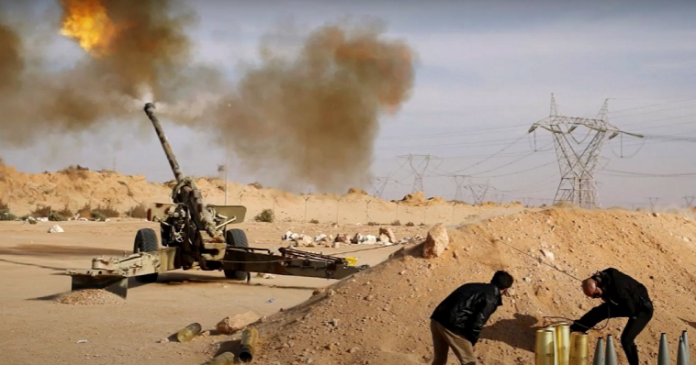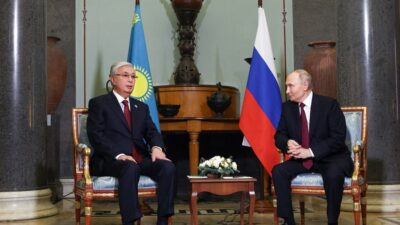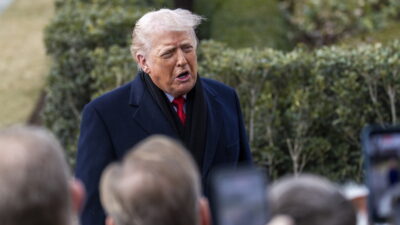Spyros Plakoudas: Weapons fall silent in Libya, but an unstable balance breeds developments
25/08/2020
On August 21, Sarraj announced a ceasefire, which was greeted by Agila Saleh (Speaker of the Libyan Parliament) and Egyptian President Sisi. This truce was not, however, a bolt out of the blue. In recent days and weeks, Washington has taken the initiative to mediate between Tripoli and Benghazi, amid fears of growing Russian influence (through the Kremlin’s long arm, Wagner) in Libya and North Africa.
Berlin was (paradoxically) a helper in this last peace effort. The reluctant EU rulers, having removed the taboos of the past, are finally taking the initiative in the Mediterranean (not always in cooperation with France) to defuse unbridled Turkish aggression. But will this effort bear fruit, or will it be spent just a communication fireworks? As I have repeatedly stated in my January article on the Berlin Conference, the roadmap to peace runs into three (intractable) obstacles:
First, divisibility issues. When Sarraj sayss pacification he means the subjugation of Eastern Libya to the authority of Tripoli (thanks to the happy, for him, outcome of the Battle of Tripoli) and the withdrawal of foreign forces (eg the Russians) from Central and Eastern Libya. On the contrary, Saleh proposes the establishment of an equal federation (with Fezan in the South as a “wild card” against the population and military “cards” of Tripoli) and the immediate withdrawal of foreign forces (ie Turk, Syrian, and Qatari) .
Second, commitment issues. Haftar (who has violated similar ceasefires a few times in the past) spent two days clarifying his stance on the ceasefire. The strong and authoritarian general will not accept (without pressure) an agreement, which will not secure him either immunity for his burdensome criminal record or power in the post-war order. As in fact happened: on August 23, Haftar declared that he rejects the “pseudo-truce”.
Third, foreign intervention. The Libyan crisis has long since turned into a proxy war. Turkey’s victorious intervention in Libya prompted Egypt, France and Russia to support Eastern Libya in order to stop the Turkish advance on Sirte and Jufra, the gateways to the “Petroleum Crescent”.
The future of the truce in Libya
The constant reinforcement of the forces of the above countries and their proxies in Libya has led to a (temporary?) freezing of the conflict, since the end of June. It does not seem possible that this convergence of these external actors (for the time being at least) can last long. Even the backroom consultations between Russia and Turkey (which fueled the literature on a second “Astana Process”) did not bear fruit.
At present, the international community is pushing for concessions almost unilaterally from Washington and Berlin on the loser, namely Eastern Libya. Hence the pressure on Benghazi to lift the embargo on oil extraction and export. This embargo, was only partially due to Haftar.
Nevertheless, the support to Benghazi from Egypt and, indirectly but clearly, Russia and France, increases the bargaining power of Eastern Libya and its resilience to (biased in favor of Turkey) pressure. Will Benghazi bend? Haftar has already rejected the truce and the reaction of the Egyptians is expected. If the Egyptians support Haftar, despite their objections, will it lead to a de facto division of the country? If so, which of the two camps will benefit?
Will the Egyptians and the French tolerate the establishment of a permanent military bridge between Turkey and Qatar in western Libya? Will the Qatar-Turkey-Sarraj axis, respectively, tolerate the occupation of 80-90% of the oil by Benghazi and the development of a stronger Russian military presence (and possibly other forces) in Central and Eastern Libya? The developments of the coming days will answer the above questions.





